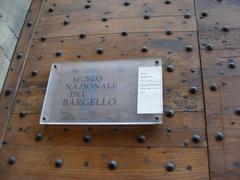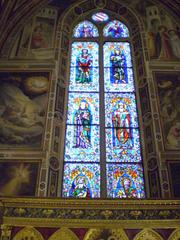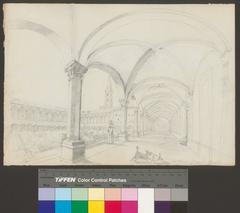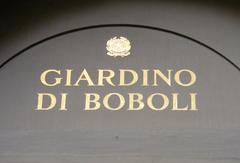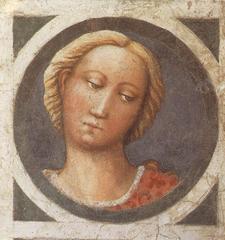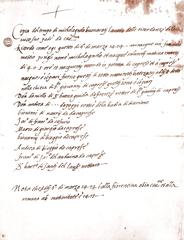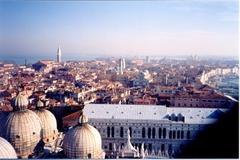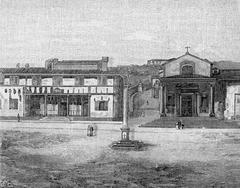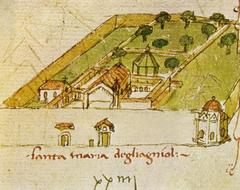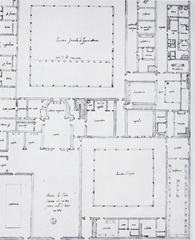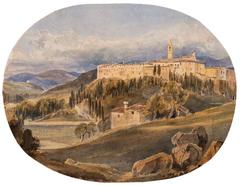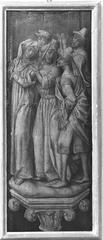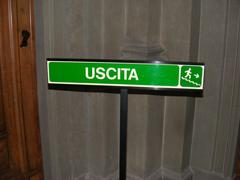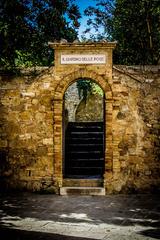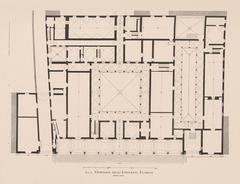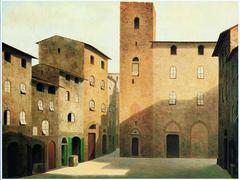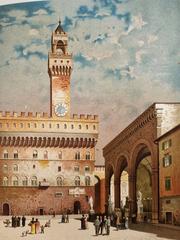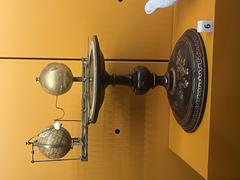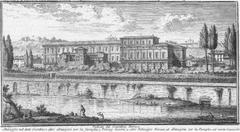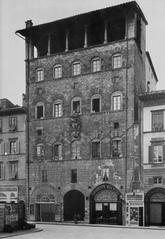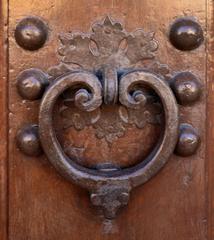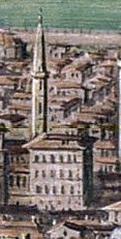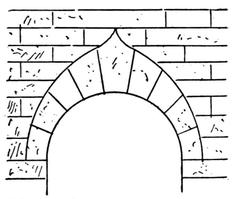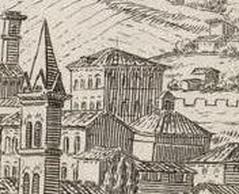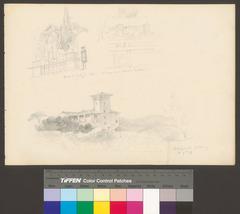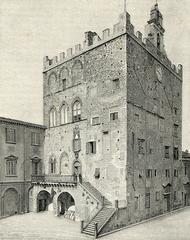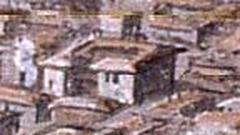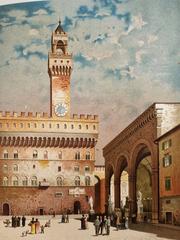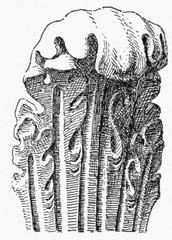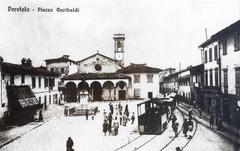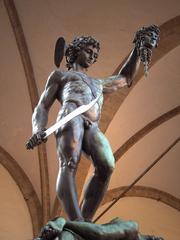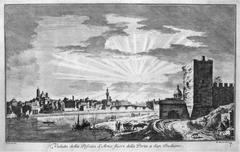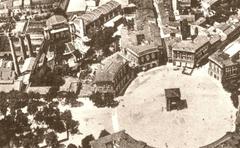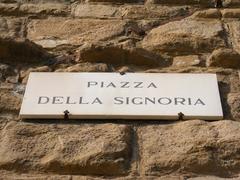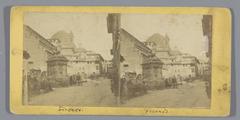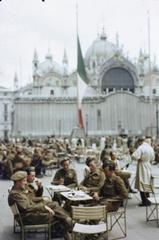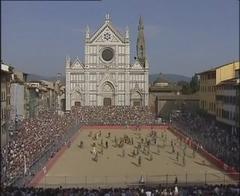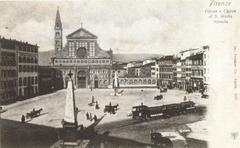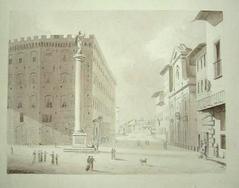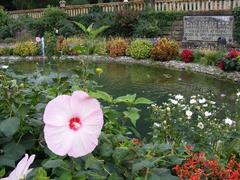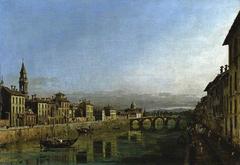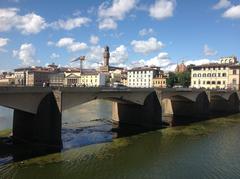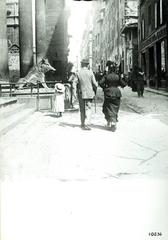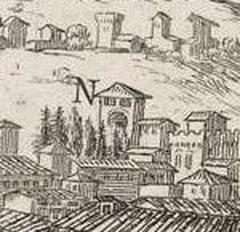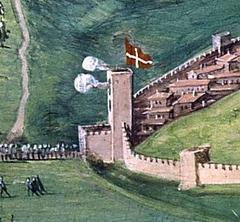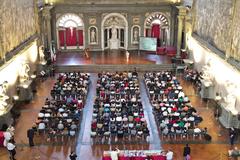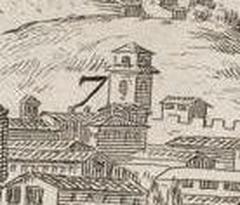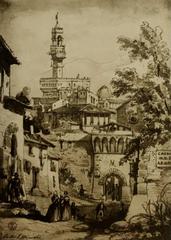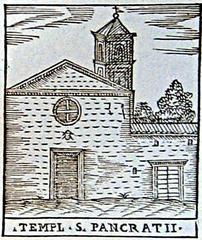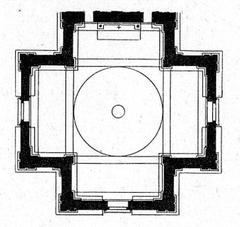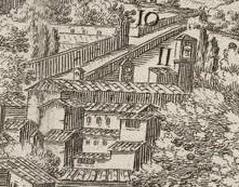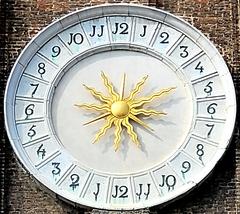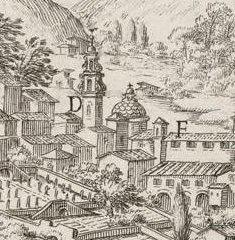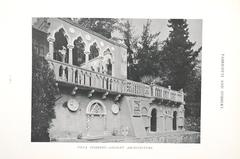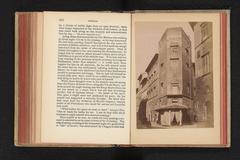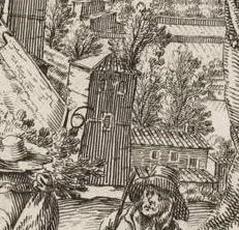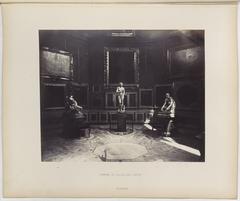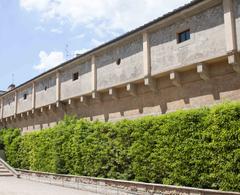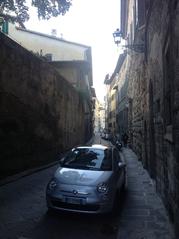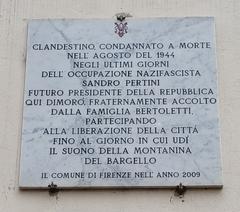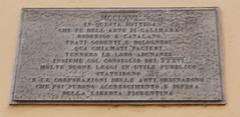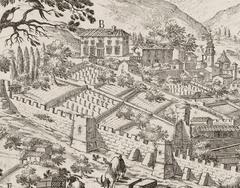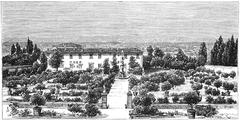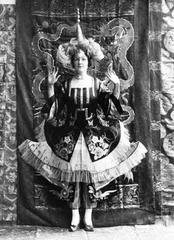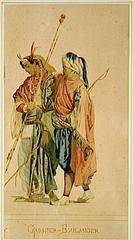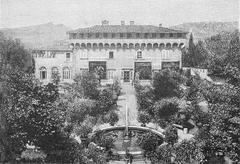Museum of Agricultural Education Florence: Visiting Hours, Tickets, and Comprehensive Guide
Date: 03/07/2025
Introduction
Florence, celebrated for its artistic and architectural masterpieces, is also home to a unique institution that showcases the region’s agricultural legacy: the Museum of Agricultural Education (Museo della Didattica e della Storia dell’Agricoltura). Located within the University of Florence’s School of Agriculture, the museum offers an in-depth look at 150 years of agricultural science, education, and rural culture in Tuscany.
More than a repository of artifacts, the museum acts as a bridge between Florence’s past and present, tracing the evolution of farming techniques, educational tools, and scientific instruments that have shaped the Tuscan landscape. With its strategic location near Cascine Park and a commitment to accessibility, the museum welcomes all visitors—students, families, researchers, and history enthusiasts—providing an engaging and inclusive experience. Admission is generally free or affordably priced, with guided tours and educational programs available. The museum also plays an active role in community engagement and research, organizing special events and collaborations with local universities and heritage organizations.
For the latest information on hours, tickets, and events, consult the School of Agriculture’s official website, as well as university partners like the American University of Florence and Florence University of the Arts.
Table of Contents
- Overview: A Unique Historical Site
- History and Institutional Background
- Collections and Exhibitions
- Visitor Information
- Special Features and Visitor Tips
- Frequently Asked Questions (FAQ)
- Community Engagement, Partnerships, and Research
- Why Visit?
- Travel Tips and Nearby Attractions
- Accessibility Services
- Visuals and Media
- Internal and External Links
- References
Discover the Museum: A Unique Historical Site
For those seeking a distinctive experience in Florence, the Museum of Agricultural Education offers a window into the history of agricultural sciences and rural life in Tuscany. Through its diverse collections and interactive exhibits, visitors can explore the technological and social developments that have influenced the region’s agricultural practices.
History and Institutional Background
The museum was established to safeguard the tangible and intangible heritage of agricultural education and rural culture. Closely linked to the University of Florence’s School of Agriculture, founded in the late 19th century, the museum’s collections document the modernization of Italian scientific education and the development of farming in Tuscany over the past 150 years.
Collections and Exhibitions
Teaching Tools
- Antique Blackboards and Textbooks: Explore original materials used in agricultural education from the late 1800s onward.
- Botanical Models: Detailed educational models for plant and crop studies.
Scientific Instruments
- Soil Analysis Devices: Early apparatus for studying soil composition.
- Plant Physiology Tools: Historical instruments highlighting technological progress.
Archival Materials
- Syllabi and Examination Records: Documentation of curriculum development and teaching methods.
- Correspondence and Administrative Documents: Insights into the organization of agricultural education.
Photographic Archives
- Fieldwork Documentation: Photos of experimental farms and rural life.
- Student and Community Life: Visual narratives from past generations.
Exhibitions are thoughtfully curated around themes such as agronomy history, the role of women in rural education, and technological innovation.
Visitor Information
Location and Access
- Address: Piazzale delle Cascine, 18, Florence (within the Cascine district and near Cascine Park)
- Public Transport: Accessible by city buses, bicycle, or a 15-minute walk from Florence Santa Maria Novella train station.
- Parking: Limited on-site; nearby public garages available.
Hours and Tickets
- General Hours: Tuesday to Sunday, 10:00 AM – 6:00 PM; closed Mondays and major holidays. (Hours may vary seasonally—check the official website before your visit.)
- Ticket Prices: General admission €8; reduced €5 (students, seniors); children under 12 free. Family passes and occasional free admission days available.
- How to Buy Tickets: Purchase online or on-site. Early booking is recommended in peak seasons.
Guided Tours and Educational Programs
- Guided Tours: Available in Italian and English, led by university staff or experts. Advance booking is advised.
- Workshops: Hands-on programs for schools, families, and adults on topics like traditional farming and sustainable agriculture.
- Lectures and Special Events: Regular lectures, conferences, and participatory events. Check the museum’s online calendar.
Accessibility
- Physical Access: Step-free entrances, elevators, and ramps throughout.
- Sensory and Cognitive Access: Tactile exhibits, multisensory tours, audio guides, and simplified guides are available. Downloadable visit aids upon request.
- Support for Hearing Impairments: Written guides, visual aids, and staff assistance. Inquire about Italian Sign Language (LIS) resources in advance.
- Additional Services: Accessible restrooms, cloakroom, café, and bookshop. Staff trained for accessibility and medical emergencies.
Special Features and Visitor Tips
- Photographic Opportunities: Historical instruments and restored machinery offer excellent photo spots.
- Family-Friendly: Interactive exhibits, scavenger hunts, and weekend workshops for children.
- Combining Visits: The location near Cascine Park and other Florence landmarks makes it easy to plan a full day of culture and leisure.
- Event Days: Free or reduced admission on certain days (e.g., first Sunday of the month) and special events during city festivals (Visit Florence Museums).
Visitor Tips:
- Dress for the season; summers in Florence are hot.
- Book tours and accessibility services in advance if needed.
- Check the website for current exhibitions and special programming.
Frequently Asked Questions (FAQ)
Q: What are the museum’s opening hours?
A: Tuesday to Sunday, 10:00 AM – 6:00 PM; closed Mondays and major holidays.
Q: How much are tickets?
A: General admission is €8, reduced €5, children under 12 free. Family and group discounts available.
Q: Is the museum accessible?
A: Yes, with barrier-free access, tactile exhibits, audio guides, and support for sensory and mobility needs.
Q: Are guided tours offered?
A: Yes, in Italian and English. Advance booking is recommended.
Q: Can I take photos?
A: Photography is permitted in most areas; adhere to posted guidelines.
Q: Is it suitable for families?
A: Yes, there are interactive and educational activities for all ages.
Community Engagement, Partnerships, and Research
The museum is deeply involved in community engagement and academic collaboration:
- University Partnerships: Collaborates with the University of Florence, American University of Florence, and Florence University of the Arts on research, internships, and educational projects.
- Volunteer Programs: Opportunities for locals and international students to assist with tours, events, and educational activities (ISI Florence).
- Inclusive Programming: Special initiatives for children, seniors, and visitors with disabilities, as well as multilingual resources (EPALE).
- Community Events: Participation in city-wide events like International Museum Day and European Heritage Days (Visit Florence Museums).
- Collaborative Exhibitions: Regularly incorporates community stories and artifacts into its displays (The Museum Scholar).
Why Visit?
The Museum of Agricultural Education offers a distinctive perspective on Florence and Tuscany’s lesser-known but vital rural heritage. It is ideal for visitors interested in history, science, and the evolution of sustainable food systems, and provides programs suitable for all ages and abilities.
Travel Tips and Nearby Attractions
- Combine Your Visit: Explore nearby sites like Florence Cathedral, Uffizi Gallery, and Cascine Park.
- Best Times: Early mornings or late afternoons for fewer crowds. Weekdays are generally quieter.
- Transportation: Florence’s buses, trams, and bike rentals make commuting easy; avoid driving in restricted zones (Visit Florence).
Accessibility Services
Florence is committed to inclusive tourism, and the Museum of Agricultural Education reflects this with:
- Step-free paths, ramps, and accessible restrooms
- Tactile and multisensory exhibits
- Downloadable guides and aids for cognitive disabilities
- Staff support for communication and mobility needs
- Free or reduced admission for visitors with disabilities and their companions (Visit Florence), (Visit Tuscany)
Visuals and Media
- Images: High-quality photos of exhibits, the museum’s facade, and workshops, all with descriptive alt text for accessibility (e.g., “Museum of Agricultural Education Florence facade”).
- Virtual Tours: Available on the official website for remote exploration.
- Maps: Interactive map on the official website showing the museum’s location and transport links.
Internal and External Links
For further information and related cultural sites, refer to:
- School of Agriculture, University of Florence
- Visit Florence Museums Portal
- American University of Florence
- Florence University of the Arts
- ISI Florence Community Engagement
- EPALE: Museum Community Engagement
- The Museum Scholar: Community Exhibitions
- Visit Tuscany Accessibility Guide
Summary and Final Tips
The Museum of Agricultural Education Florence stands out as a vital institution that weaves together the threads of Tuscany’s rural heritage, educational innovation, and community engagement. Through a rich array of artifacts, interactive displays, and inclusive programs, the museum offers a holistic, accessible experience for all visitors. Whether you’re interested in history, science, or the future of sustainable agriculture, the museum provides valuable insights and a fresh perspective on Florence’s cultural landscape.
Before visiting, always check the latest hours, ticketing options, and event schedules on the official website. Enhance your experience with the Audiala app for audio tours and AR features. Share your visit on social media, and explore related articles to further immerse yourself in Florence’s multifaceted heritage.
References and Further Reading
- Visiting the Museum of Agricultural Education in Florence: Hours, Tickets, History, and Highlights, 2025, University of Florence School of Agriculture (https://www.agraria.unifi.it/)
- Visiting the Museum of Agricultural Education in Florence: Hours, Tickets, and Cultural Insights, 2025, American University of Florence (AUF) and Florence University of the Arts (FUA) (https://www.auf-florence.org/), (https://www.fuainternational.org/)
- Museum of Agricultural Education Florence: Visiting Hours, Tickets & Exhibitions Guide, 2025 (https://www.agraria.unifi.it/)
- Museum Of Agricultural Education Visiting Hours, Tickets, and Accessibility Guide | Explore Florence Historical Sites, 2025, Visit Tuscany, Visit Florence (https://www.visittuscany.com/en/ideas/accessibility-in-florences-museums/), (https://www.visitflorence.com/)
